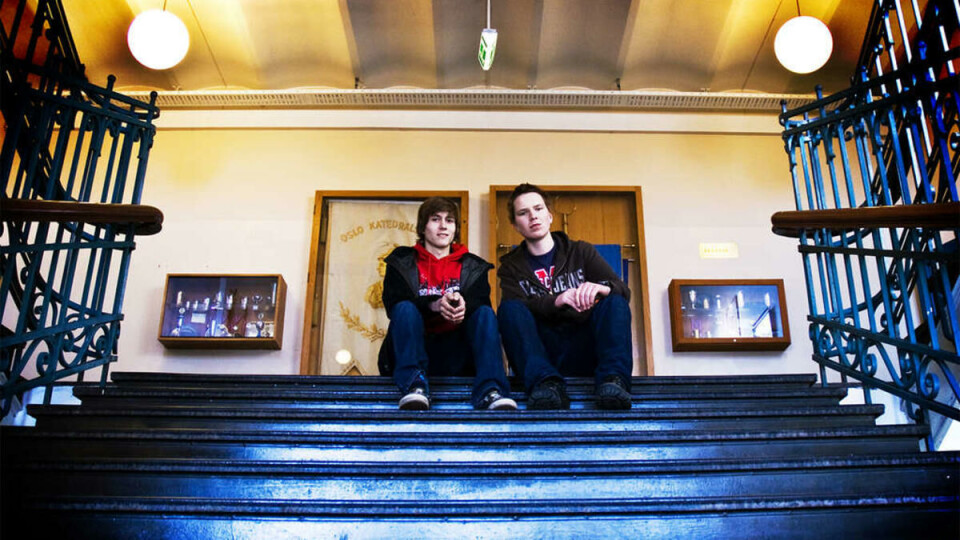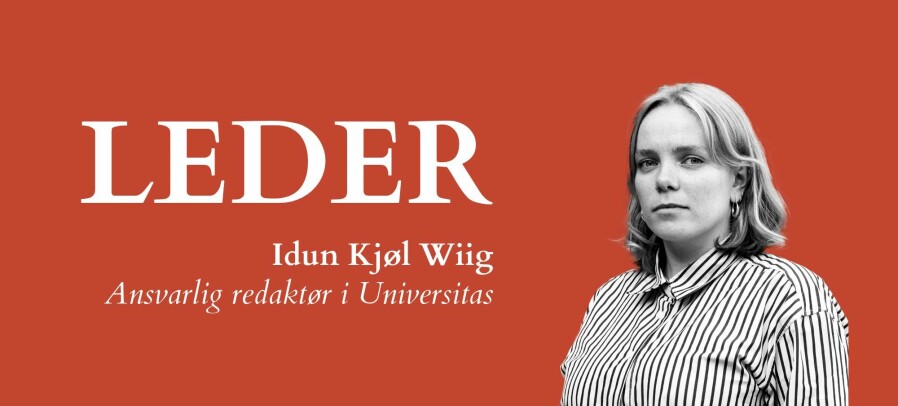
Pouncing on prodigious pupils
A far greater number of gifted upper secondary school pupils in Oslo are going to be able to take subjects at university.
The University of Oslo (UiO) wants to put a system in place that will allow the most talented pupils at upper secondary schools in Oslo to take exams at UiO. Monica Bakken, director of academic affairs at UiO, hopes that the system will be in place in the autumn.
– The Knowledge Promotion has given both upper secondaries and institutions of higher learning a responsibility to take care of prodigious students. It is also interesting with a view to recruitment to the university later on, Bakken explains.
Paul Jasper is headmaster at Oslo Katedralskole, one of the schools that is likely to be included in the arrangement.
– I am pleased to see a proposal that would make this process less bureaucratic and easier to put into motion, he says.
Currently less than five upper secondary students are taking subjects at UiO, but now the director of academic affairs is working with the City of Oslo to make it easier to bring in a far greater number of talented pupils. For the moment deals are made individually for each pupil, and made directly between the upper secondary school and the faculty.
– We have had a few students who have done this previously, but there have been certain formal hindrances. There was a demand, for example, that pupils had to be matriculated at the university before they could take exams, Jasper states.
– Looks best on paper
Even though the system should be in place in the autumn, it is not clear how many spaces the university will be able to reserve for the brainy pupils.
– First we must examine the resources at each faculty. There is no question of upper secondary pupils being able to push out the university’s own students; we must find out which subjects have the available capacity, she emphasizes.
Heine Skipenes, leader of the Student Parliament, finds the proposal very interesting.
– This is something that society wants. The Conservative Party of Norway is campaigning for it, and this is about giving pupils the opportunity to take a natural step forward in their educations, he says.
Yet he is still worried about how the pupils will be received among students.
– Should the pupils be part of the student environment, or should they just come for lectures and leave afterwards? Should they be pariahs, or have a place among students? I am afraid that this is something that looks best on paper. It is easy to forget that the pupils in question are actually people, he says.
– Cool to be clever
Ivar Grytten is in his second year at Oslo katedralskole, and took first year upper secondary mathematics while in his last year of lower secondary school. This means that he will be finished with mathematics this year, and he would like to be able to take courses at university level.
– I think it is a good measure. Neither he nor his schoolmate Nicolai Munch Frisak find it problematic that some pupils will be allowed to study at a higher level.
– That is the way it has to be. It is not uncool to be clever, quite the opposite. People look up to you if you excel, Grytten says.
– People should be able to do as well as they can, and if anyone has the ability to study at such a high level, they should be able to do so. You have to accept that people are different, Frisak states.
Headmaster Paul Jasper says that the school is renowned for their talented maths students, and adds that 80 percent of pupils take mathematics beyond the obligatory level.
Faculties decide
The upper secondary pupils currently taking English subjects at UiO follow regular lectures at the Faculty of Humanities, while pupils taking mathematics have specialized teaching at their own school. Pupils do not get the study points for exams they have taken until they have gained the basic entrance requirements for university. This means that universities do not profit from these study points until the pupils have completed upper secondary school. The teaching and exam costs that come with the pupils, is covered by the individual faculty.
– This is why it is important to receive clarification from each faculty on the resources that are available and how much capacity they have to welcome new students, Bakken points out.
The faculties have been asked to clarify their desired capacities in such a system, and the Academic Affairs Committee will process this case on the 28th of May.
































